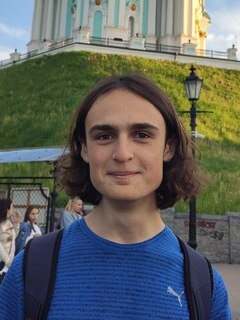 Google Summer of Code 2025 Contributor
Google Summer of Code 2025 Contributor
email: petro[dot]zarytskyi[at]gmail[dot]com
Education: Applied Mathematics, Taras Shevchenko National University of Kyiv, Ukraine, 2021-present
Ongoing project:
Improve automatic differentiation of object-oriented paradigms using Clad
Clad is a Clang plugin enabling automatic differentiation (AD) for C++ mathematical
functions by modifying the abstract syntax tree using LLVM’s compiler capabilities.
It integrates into existing codebases without modifications and supports forward and
reverse mode differentiation. Reverse mode is efficient for Machine Learning and
inverse problems involving backpropagation.
Reverse mode AD requires two passes: forward pass stores intermediate values, reverse
pass computes derivatives. Currently, Clad only supports storing trivially copyable
types for function call arguments, limiting support for C-style arrays and non-copyable
types like unique pointers, constraining Object-Oriented Programming usage.
The project aims to enhance Clad’s capability to store intermediate values for non-copyable
types. One of the challenges lies in determining which expressions are modified in nested
functions, potentially requiring run-time memory location tracking, which can be inefficient.
The solution involves enhancing To-Be-Recorded (TBR) analysis, currently limited with
poor nested function call support and no pointer reassignment handling. Improved TBR
analysis will enable predictable memory handling, generating optimal code, and
supporting both non-copyable types and efficient storage of copyable structures.
Project Proposal: URL
Mentors: Vassil Vassilev, David Lange
Completed project project:
Optimizing reverse-mode automatic differentiation with advanced activity-analysis
Clad is an automatic differentiation clang plugin for C++. It automatically
generates code that computes derivatives of functions given by the user.
Clad can work in two main modes: forward and reverse. The reverse mode involves
computing the derivative by applying the chain rule to all the elementary operations
from the result to the argument. It turns out to be more
efficient when there are more dependent output variables than independent
input variables (e.g. calculating a gradient). However, the approach to blindly
compute the derivatives of all the intermediate variables obviously produces
code that does a lot of unnecessary calculations. With advanced activity analysis,
the variables which are not used to compute the result can be found and removed,
increasing the time- and memory- efficiency of the output code.
Project Proposal: URL
Mentors: Vassil Vassilev, David Lange